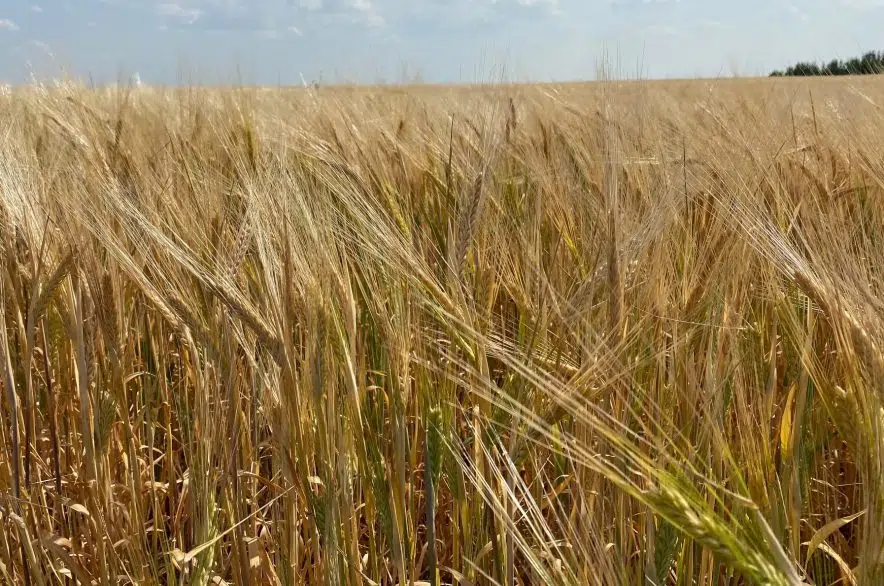Harvest in Saskatchewan remains well ahead of the pace of previous years.
According to the Ministry of Agriculture’s weekly crop report, 33 per cent of the 2023 crop was in the bin as of Monday, an increase of 12 per cent from the previous week. The ministry noted the five-year average for this time of year is 23 per cent and the 10-year average is 20 per cent.
The report said farmers in the southwest area of the province were furthest ahead with their harvest 60 per cent complete, with those in the west-central area at 39 per cent. Others aren’t progressing as quickly with their harvest.
“With some moisture moving into the area this week, the northwest had to pause combining for a few days and is now eight per cent complete,” the report said.
The ministry said 96 per cent of fall rye and 89 per cent of winter wheat were in the bin in terms of fall cereals. Lentils and field peas were leading the way among spring seeded crops, at 80 per cent each.
Canola (10 per cent) and flax (seven per cent) were lagging among oilseeds.
Recent rains improved moisture levels in the province, with cropland topsoil ratings reaching 32 per cent adequate, 43 per cent short and 24 per cent very short. Moisture levels in hay and pasture land were rated as 22 per cent adequate, 49 per cent short and 29 per cent very short.
Drought conditions have been an issue around the province this summer, prompting governments to step in to provide assistance. Rural municipalities around the province also have raised the alarm about the dry conditions.
The crop report said drought, hail, wind, flooding, grasshoppers and gophers caused crop damage during the week, while geese did some damage in northern fields.
“Producers are busy combining, desiccating and marketing grain,” the report said. “Others are marketing cattle, hauling water and feed. Some producers have started to move cattle home for the winter.
“If producers have questions about feed, they are encouraged to call their local regional specialist.”
To help drought-stricken livestock operations, the provincial government has made $70 million in aid available “to help offset extraordinary costs of feeding livestock to maintain the breeding herd in Saskatchewan.”
Farmers were reminded to have firefighting equipment at hand when combining and to be cautious when working around power lines.
The report also urged farmers to use the Farm Stress Line (toll free at 1-800-667-4442) if they need support. Other resources also are available to help farmers who are overwhelmed by stressors during harvest.
As well, the public was reminded to take extra caution and give time and space to farm machinery that drivers encounter on the roads.











